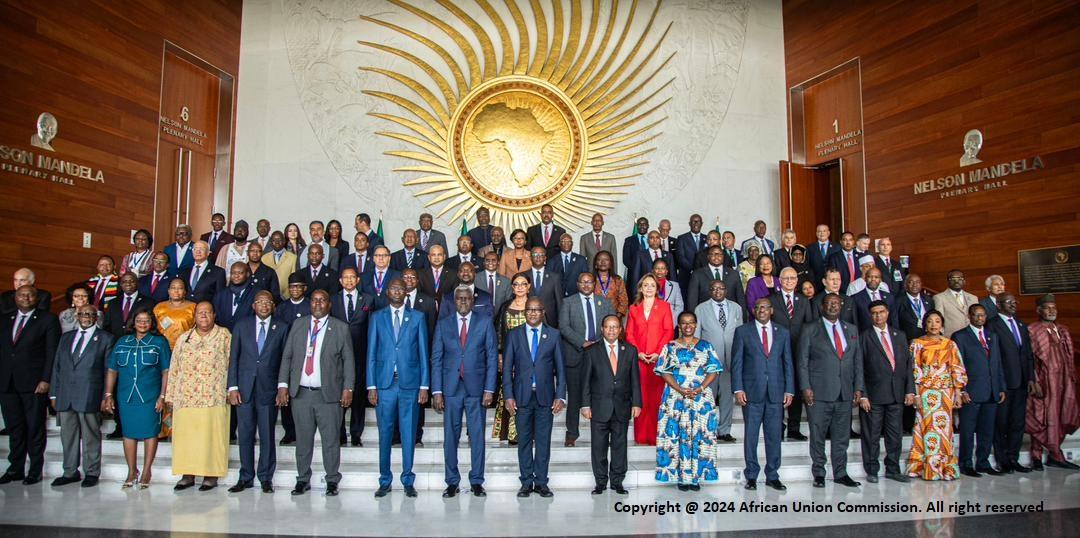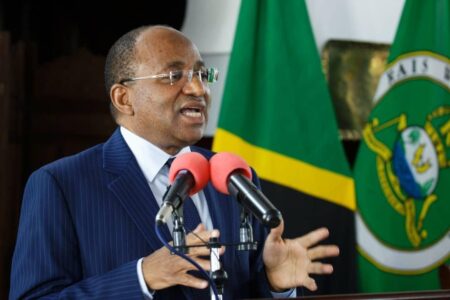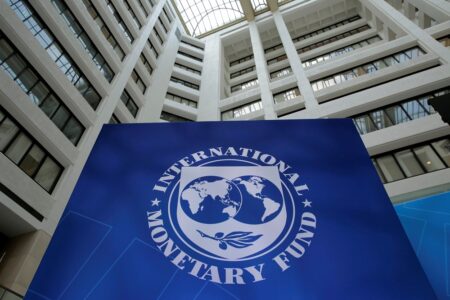- The AU Summit 2024 is taking place in Addis Ababa, Ethiopia.
- The AU Summit 2024 has brought together the Committee of Ten Heads of State and Government.
- Marking a historic first, the year dedicated to Education follows its endorsement at the 36th Ordinary Session of the Assembly of AU Heads of States.
Finance and economic experts from Africa have called on African leaders at the AU Summit 2024 to match unity speak with actions and step up regional integration efforts, as theselatex hood brock bowers jersey adidas yeezy boost 350 turtle dove custom stitched nfl jersey air max 270 women air jordan 1 element air max 270 women jordan proto max 720 borsa prima classe black friday wig sale asu football jersey asu football jersey luvme human hair wigs jock strap custom sublimated hockey jerseys are key to the continent’s agency and success in the push for debt reforms and an overhaul of the global financial architecture.
Speaking on the sidelines of the African Union summit in Addis Ababa, Ethiopia, where African heads of state will convene over the weekend, the experts noted that over 30 countries in Africa are in debt distress primarily due to structural traps that keep the continent locked at the bottom of the value chains.
“The continent is largely an exporter of raw commodities and importer of finished goods, and this means we will always be in a liquidity crunch and cash shortfall. This necessitates having to go for loans,” said Jason Braganza the Executive Director of African Forum and Network on Debt and Development (AFRODAD).
He said the only way to address these structural deficiencies would be for Africa to have a coherent and coordinated approach that underscores the value that the continent brings to global trade and commerce as a net creditor to the world.
Read Also: African NGOs Call to stop the growth of Coal, Oil and Gas at AU Summit.
Mavis Owusu-Gyamfi, Vice President of the African Center for Economic Transformation (ACET), called for a global financial architecture responsive to Africa’s current realities and complex challenges.
“The international financial systems were set up 80 years ago when most African countries were colonised, and the system locked them out of industrialisation. Given what Africa has given to the world as a provider of natural resource capital, it is not too much to ask for an increase and a fair share of allocations through public goods such as the International Development Assistance (IDA) and the Special Drawing Rights (SDRs),” said Owusu-Gyamfi.
Hannah Ryder, the CEO of Development Reimagined, stated that Africa still requires significant support from the rest of the world. She explained that despite efforts made domestically and the involvement of new lenders like China and private sector entities, it is essential to reflect on the situation dating back to the 1980s.
AU Summit 2024 Heads of State Plans
During that period, African governments recognized that their ambitions, such as infrastructure development, couldn’t solely rely on domestic resources. Factors such as colonization had severely impacted their economies.
Ryder highlighted that analyses conducted at Development Reimagined, drawing from various reports examining 13 African countries, revealed that to achieve the aspirations outlined in Agenda 2063 and meet the SDG targets, these nations would require an annual investment ranging between USD 100 to 150 billion.
“If they were to do that through external finance the way it works at the moment, they would be crashing their debt sustainability thresholds within a few years, and many countries have done so. The global financial architecture, which was initially set up to serve major powers, needs to be overhauled if they are to respond to the needs of Africa and developing countries,” said Ryder
Dr Patrick Ndzana Olomo, the Acting Head of the economic policy and research division at the Department of Economic Affairs of the African Union Commission, emphasized that Africa’s admission to the G20 presents an opportunity to establish comprehensive frameworks within the G20 aimed at curbing illicit financial flows, which result in the continent losing USD90 billion annually.
Read Also: 2021 AU Summit: What to expect as the baton passes to the next chair.

He stressed the importance of Africa’s participation in the G20 discussions to address strategic issues relevant to the continent’s interests.
The experts spoke at a media briefing event convened by the African Forum and Network on Debt and Development (AFRODAD) and Christian Aid.











